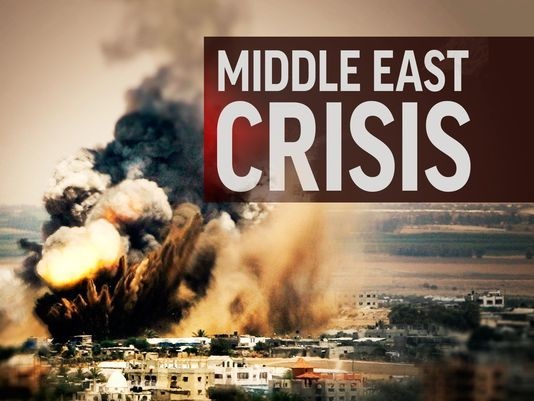
The Middle East teeters on the edge of wider conflict as Israeli assassinations in Beirut and Tehran intensify the complex, multi-pronged war between Israel, Iran and their allies and proxies, writes Afshon Ostovar, an associate professor of National security affairs at the Naval postgraduate school in Monterey, California.
With the assassinations by Israel of two prominent militant Arab leaders in Beirut and Tehran, the Middle East crisis has reached another inflection point. Whether these events presage a turn toward more active warfare or will pass as spikes in what has otherwise been a steady stream of transnational violence, is unclear. But what should be unmistakable is that the Middle East is already in the midst of a regional war. And that war is intensifying.
The assassinations in Beirut and Tehran, along with the strike in the Golan, are all part of a complex Middle East war that has been gradually building steam for decades. This war is best understood as an intersection of two separate but related conflicts: one between Israel and the Palestinians, and the other between Israel and Iran. Both conflicts played out in tandem but have increasingly crossed over to a point that since 7 October 2023, they have been difficult to disentangle.
In response to the war in Gaza, Iran-backed groups across the region began targeting Israel with rocket, drone, and missile strikes. Hizbollah has been the most active in this regard, and its attacks have forced thousands of Israelis to flee their homes in the north. Israel has also endured numerous missile and drone attacks from the Houthis in Yemen, including a strike on 19 July that hit an apartment building and killed an Israeli civilian.
Israel has waged a counter-campaign against Iran and its allies, leading to scores of strikes against Hizbollah, IRGC, and Iran-backed proxies in Lebanon and Syria, and a significant attack on fuel storage in the Houthi-controlled Yemeni port of Hodeidah. Israel has also pursued a longstanding covert campaign inside Iran, which has included industrial sabotage and the assassination of military officials.
An all-out war is also a possibility, but not something that clearly favours either side. Iran and its allies cannot bring the war to Israel. They don’t have the means, and even if they had the will, the United States and Israel’s other European allies would inevitably intervene. War is not a simple solution for Israel either. Israel lacks the military strength to sustain a bilateral war against Iran on its own, and a war in Lebanon against Hizbollah – whose weapons stockpile is buried deep below Beirut and other urban strongholds in intricate and sophisticated tunnel networks – would be orders of magnitude more difficult than the current campaign in Gaza. Some in Israel’s political establishment might pine for the United States to lead an effort against Iran and its proxies but successive administrations have shown little interest in war with Iran, and the current White House is unlikely to pursue such adventurism in an election year.
A greater war, such as the one that took place in Lebanon in 2006, is also something that Hizbollah and Iran are likely to want to avoid.
With Hamas and Palestinian Islamic Jihad heavily damaged in Gaza, Hizbollah remains Iran’s main leverage point with Israel. Were Hizbollah to be similarly weakened, Iran’s ability to organise coercion against Israel would correspondingly falter. Iran maintains militias in Syria and Iraq, who, along with the Houthis in Yemen, are able to target Israel with missiles and drones, but those militias are distant shadows of Hizbollah and lack the group’s cohesion, discipline, and military acumen.
In other words, each party in the present crisis has incentives to limit the escalatory cycle and prevent an all-out war from breaking out. It is perhaps for these reasons that, so far, Hizbollah, Israel, and Iran, have settled into the current pattern of tit-for-tat violence. That cycle has kept the conflict at a slow boil but has done nothing to alter its course.
What is unlikely to occur is a settling of differences. The only way to avoid a deepening war is for the region’s actors to adopt fundamentally different goals, and for their leaders to make fundamentally different choices. Until there is the will for change, the perpetuation of conflict is inevitable, Afshon Ostovar concludes.
read more in our Telegram-channel https://t.me/The_International_Affairs

 10:39 04.08.2024 •
10:39 04.08.2024 •






















